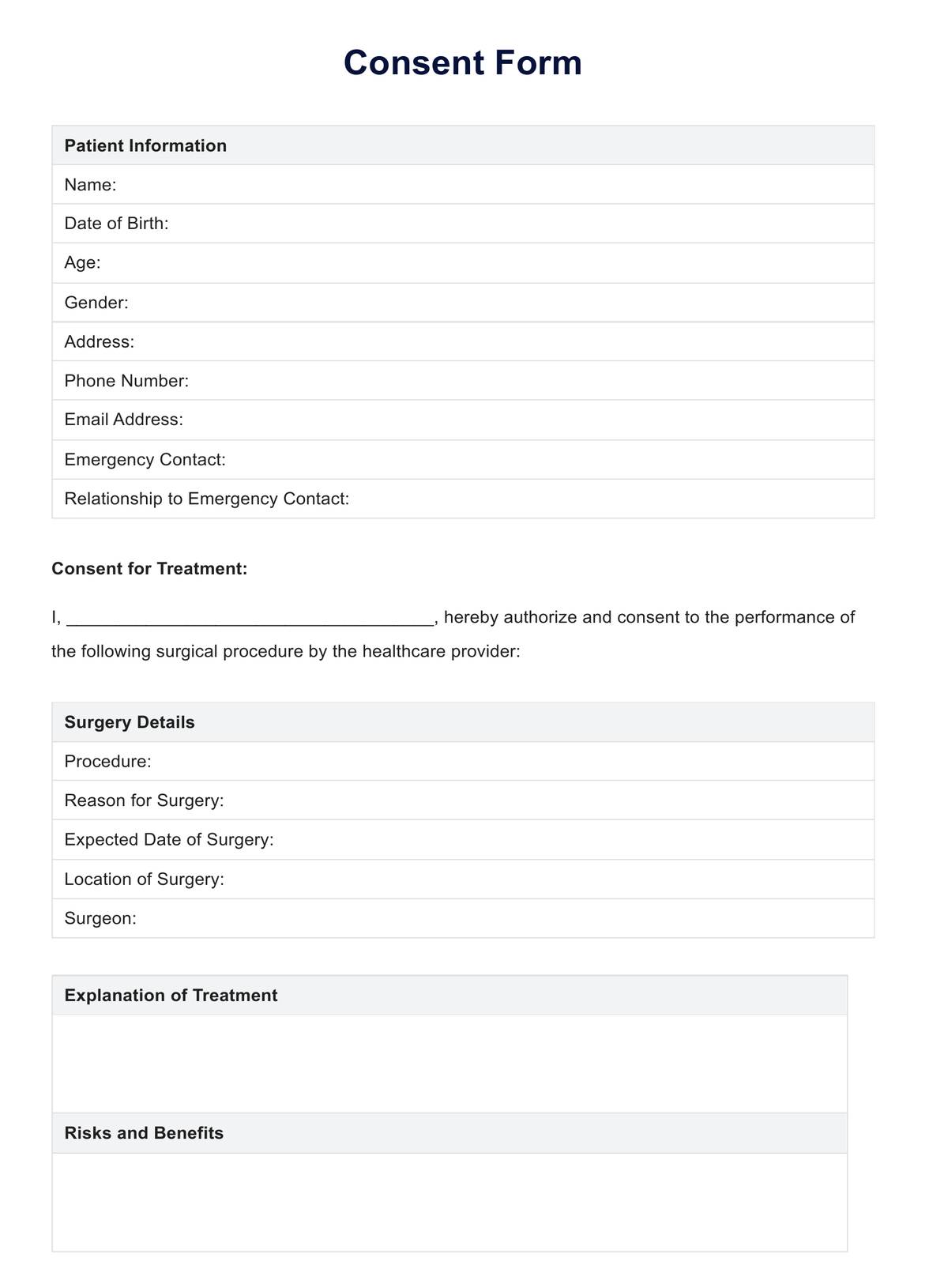The consent form outlines a range of services, including medical procedures, research participation, and other activities, ensuring participants are fully informed about the nature and scope of their involvement.

Consent Form
Download our free Consent Form for informed decision-making in medical procedures. Ensure clear communication with patients and protect their rights.
Use Template
Consent Form Template
Commonly asked questions
While the template form is versatile, ensuring that all necessary benefits and risks are communicated is crucial. Consider consulting legal professionals to customize the form to specific situations.
Anyone involved in activities requiring consent, from healthcare professionals to researchers, can benefit from this template.
EHR and practice management software
Get started for free
*No credit card required
Free
$0/usd
Unlimited clients
Telehealth
1GB of storage
Client portal text
Automated billing and online payments











